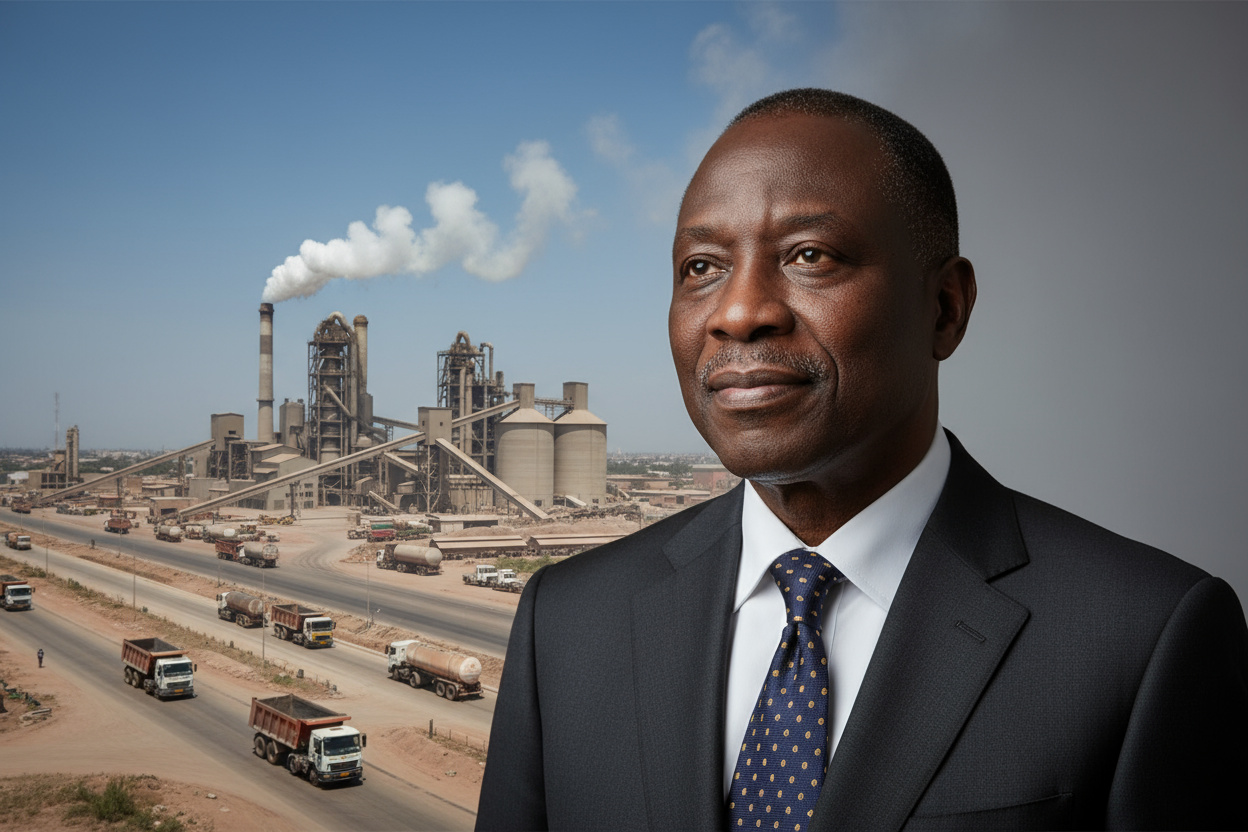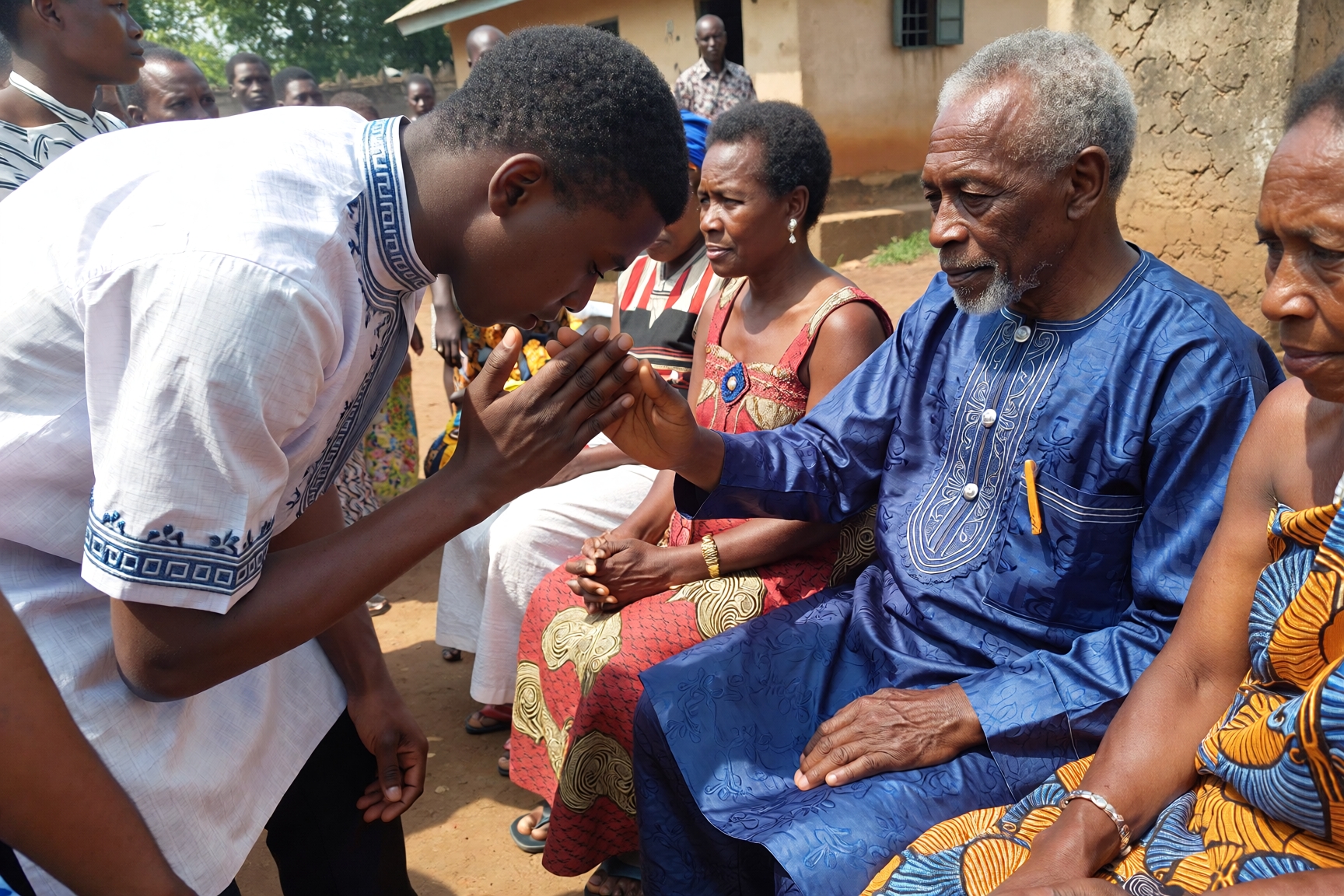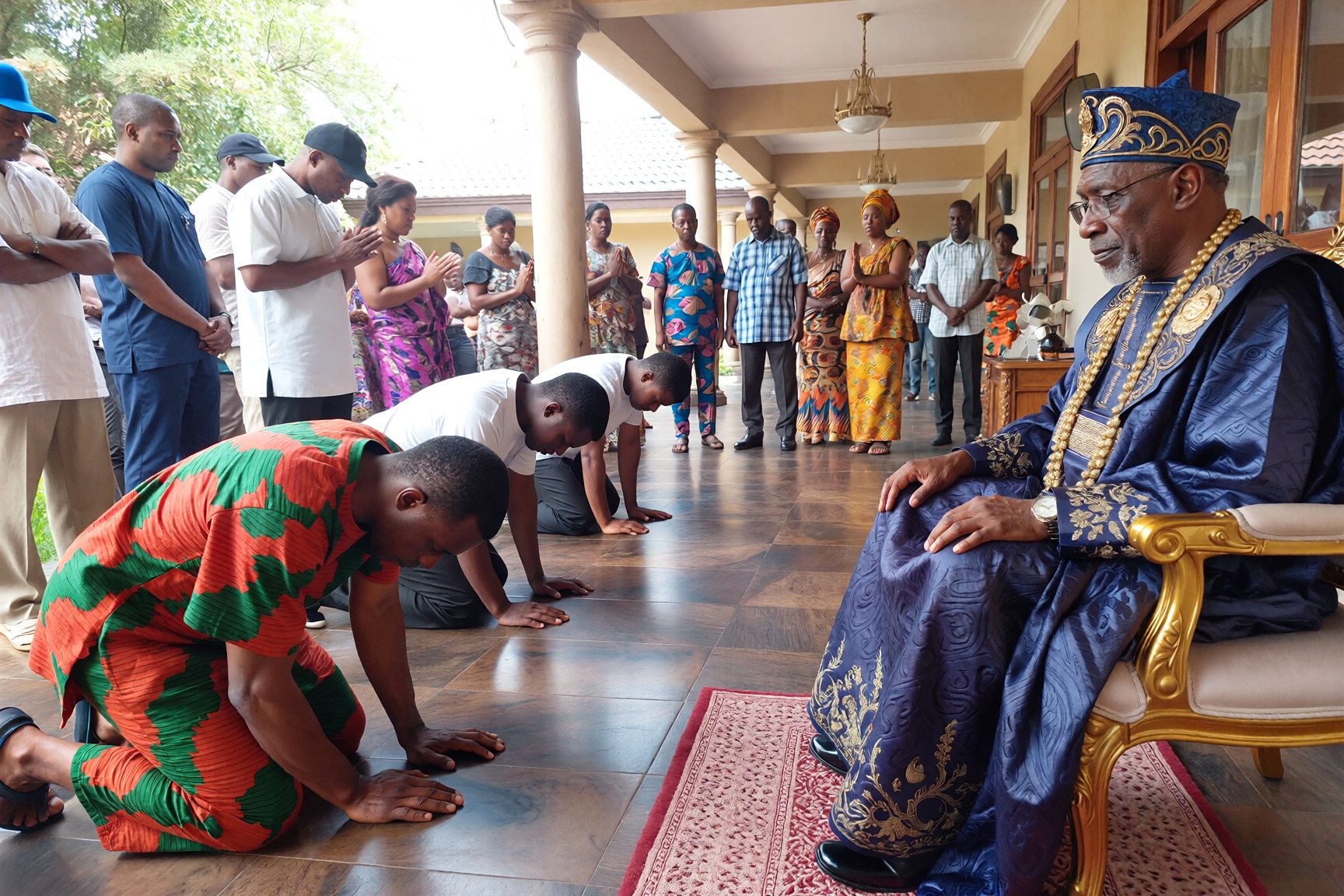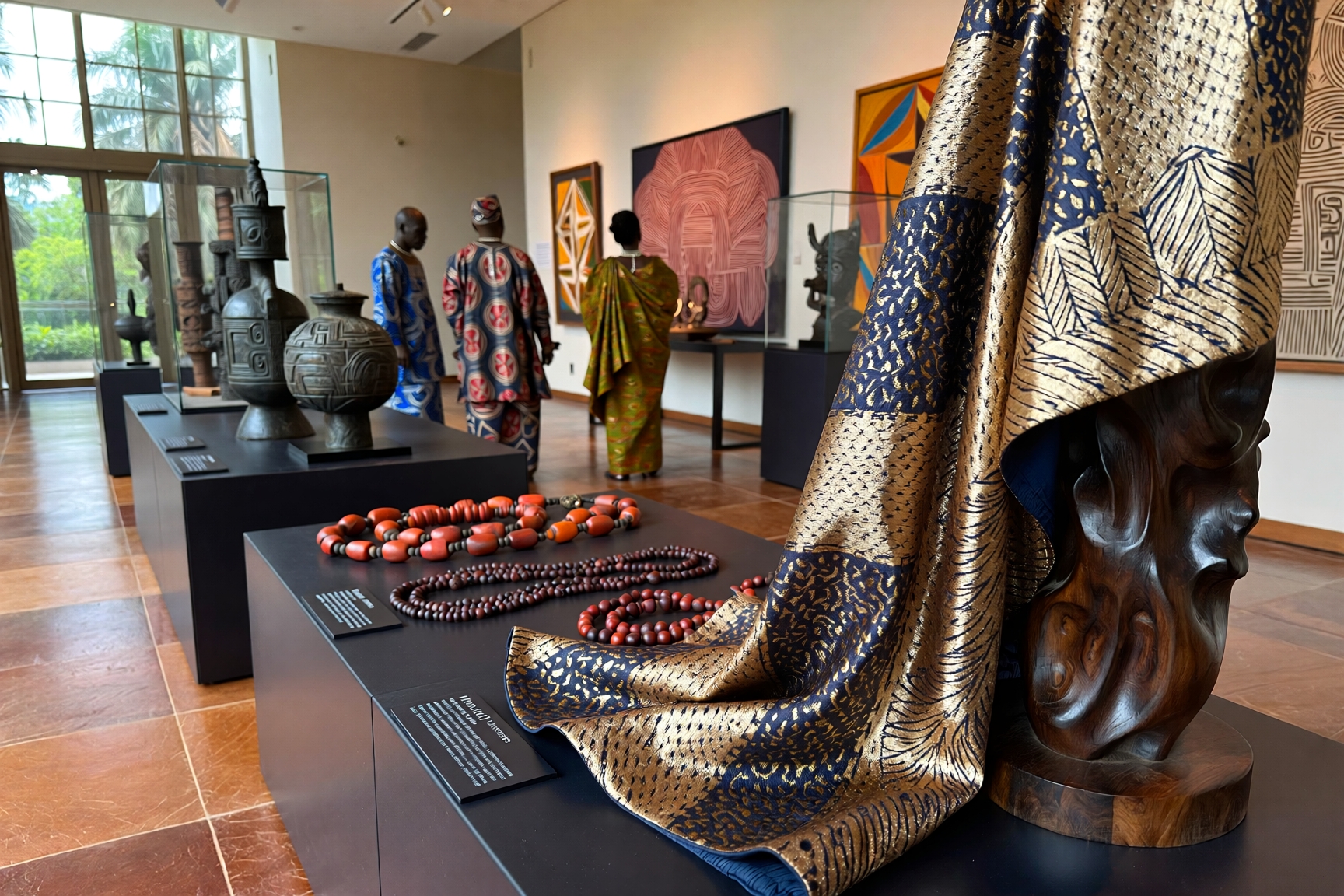After months of meticulous research into Nigeria’s wealthiest individuals, countless hours poring over financial reports from the Securities and Exchange Commission, and years of professional experience covering Nigerian business and economic affairs, I can tell you that understanding who holds the title of Nigeria’s richest person reveals so much more than just numbers on a balance sheet.
The richest man in Nigeria is Aliko Dangote, the industrialist and founder of the Dangote Group, with an estimated net worth of approximately ₦22.5 trillion (about $13.5 billion) as of 2025. His wealth stems primarily from his cement manufacturing empire, sugar production, salt processing, and most recently, his massive petroleum refinery in Lagos. Having tracked Dangote’s business empire since my early days as a business journalist in Lagos, I’ve watched this man transform not just his own fortune but Nigeria’s entire industrial capacity.
I still remember attending a business roundtable in Abuja back in 2018 where a young entrepreneur asked Dangote the secret to his success. His answer was refreshingly simple: “Start small, dream big, and never stop working.” Those words have stuck with me through every article I’ve written since.
Understanding Nigeria’s Wealthiest Individuals: The Top 10 Richest Men
Nigeria’s wealth hierarchy reads rather like a fascinating novel with unexpected plot twists, temporary setbacks, and triumphant comebacks. The list of Nigeria’s wealthiest individuals changes slightly depending on whether you’re looking at Forbes’ calculations, Bloomberg’s Billionaires Index, or the local Nigerian Stock Exchange valuations. Currency fluctuations alone can shift someone’s ranking by billions of naira in a single week.
Let me share what I’ve learned from tracking these fortunes professionally.
According to Forbes’ latest global billionaires ranking, four Nigerian businessmen currently hold positions among the world’s wealthiest individuals. Aliko Dangote leads with a fortune of $24.4 billion, placing him at number 88 globally. He remains far ahead of other Nigerians on the chart, with his wealth being more than three times that of Abdulsamad Rabiu, who follows at position 516 with $7.2 billion.
Mike Adenuga of Globacom sits at number 592 with $6.3 billion, whilst billionaire investor Femi Otedola makes the cut at position 2,424 with $1.5 billion. These rankings underscore Dangote’s dominance as not just Nigeria’s richest man but Africa’s wealthiest individual.
What strikes me most about Nigeria’s ultra-wealthy is how differently they’ve built their fortunes. Dangote focused on cement and essential commodities. Adenuga conquered telecommunications and oil. Rabiu expanded strategically through cement, sugar, and real estate. Otedola pivoted from fuel distribution to power generation with remarkable timing.
The remaining spots in Nigeria’s top 10 typically include business moguls like Tony Elumelu (banking and investments), Jim Ovia (banking and technology), Folorunsho Alakija (oil and fashion), Cletus Ibeto (automotive and real estate), Orji Uzor Kalu (trading and media), and Arthur Eze (oil and gas). Their combined wealth exceeds ₦69 trillion, which is approximately $42 billion.
However, and this is crucial, these rankings shift constantly. The Central Bank of Nigeria’s exchange rate policies, global commodity prices, and stock market performance can dramatically alter net worth calculations. I’ve seen someone drop three positions in a single quarter simply because their primary asset was tied to oil prices during a global downturn.
Understanding Nigeria’s Billionaire Wealth Patterns
Most Nigerian billionaires made their fortunes in specific sectors. Here’s what I’ve noticed:
1. Cement and Construction Materials
Dangote and Rabiu both dominate this space. Nigeria’s infrastructure boom requires constant cement supply, creating enormous wealth for those who control production and distribution.
2. Telecommunications
Mike Adenuga built Globacom into Nigeria’s second-largest mobile network. The sheer subscriber base (over 60 million active users) generates consistent revenue streams that translate to substantial personal wealth.
3. Oil and Gas
Traditional wealth in Nigeria comes from petroleum. Whether it’s exploration, refining, or distribution, oil money has created numerous billionaires. Dangote’s refinery alone cost over ₦33 trillion ($20 billion) to construct.
4. Banking and Finance
Nigeria’s banking sector produces significant wealth. Tony Elumelu’s Heirs Holdings and Jim Ovia’s Zenith Bank created fortunes through strategic financial services.
5. Diversified Investments
The smartest Nigerian billionaires diversify. They don’t rely on single revenue streams. Otedola’s move from fuel to power generation exemplifies this strategic thinking.
How to Build Wealth in Nigeria: 5 Strategic Steps
Based on my years studying Nigeria’s wealthiest individuals, here’s what consistently appears in their success stories:
1. Identify Essential Needs
Dangote focused on cement because Nigeria constantly builds. Adenuga recognised telecommunications demand before most competitors. Find what Nigeria needs perpetually, not temporarily.
2. Start Small, Scale Strategically
Every Nigerian billionaire started somewhere modest. Dangote began by selling cement as a trading business before building factories. Don’t wait for perfect conditions.
3. Leverage Government Contracts and Policies
Understanding Nigeria’s regulatory environment matters enormously. The Federal Ministry of Finance’s policies on local content, import restrictions, and industrial incentives create opportunities for those paying attention.
4. Build Strategic Relationships
Nigerian business success often requires strong networks across political, traditional, and business spheres. This isn’t corruption but relationship management in a relationship-driven culture.
5. Reinvest Profits Relentlessly
Nigerian billionaires aren’t spending their fortunes on yachts and private islands. They’re reinvesting into new factories, additional production lines, and expansion projects. Compound growth through reinvestment creates generational wealth.
Who Is the Richest Man in Nigeria Right Now in 2025?
As of November 2025, Aliko Dangote remains Nigeria’s richest man with an estimated net worth of ₦22.5 trillion (approximately $13.5 billion). His fortune has actually increased substantially over the past 18 months thanks primarily to his petroleum refinery finally reaching full operational capacity.
I need to explain something important here. Dangote briefly lost his position as Africa’s richest person in early 2024 to South African luxury goods magnate Johann Rupert. That dip occurred because Dangote had invested over ₦33 trillion ($20 billion) into constructing his refinery, which temporarily reduced his liquid assets whilst the facility remained under construction.
The story of how Dangote reclaimed Africa’s richest man title demonstrates the power of long-term strategic investments. Once the refinery began operations in late 2024, processing 650,000 barrels of crude oil daily, his net worth surged dramatically, more than doubling to $27.8 billion. Bloomberg’s latest billionaires index confirmed his return to the top position, noting that the refinery is one of the most complex globally, capable of processing most crude types.
The refinery’s impact extends beyond personal wealth. It’s transforming Nigeria’s economy by reducing our dependence on imported refined petroleum products. According to Dangote himself, the plant meets 100 per cent of Nigerian consumption needs for all refined products, including 53 million litres per day of gasoline, with surplus capacity for exports.
Let me put this in perspective with some comparative figures that really illustrate the scale we’re discussing.
Current Net Worth of Nigeria’s Top 5 Billionaires
| Rank | Name | Primary Business | Estimated Net Worth (₦) | Estimated Net Worth ($) | Key Assets |
|---|---|---|---|---|---|
| 1 | Aliko Dangote | Cement, Refining, Sugar | ₦22.5 trillion | $13.5 billion | Dangote Cement, Dangote Refinery, Dangote Sugar |
| 2 | Abdulsamad Rabiu | Cement, Sugar, Real Estate | ₦7.9 trillion | $4.8 billion | BUA Cement, BUA Foods, BUA Properties |
| 3 | Mike Adenuga | Telecommunications, Oil | ₦6.9 trillion | $4.2 billion | Globacom, Conoil, Equitorial Trust Bank |
| 4 | Femi Otedola | Power Generation, Investments | ₦2.8 trillion | $1.7 billion | Geregu Power, Strategic Investments |
| 5 | Tony Elumelu | Banking, Investments | ₦1.6 trillion | $1.0 billion | Heirs Holdings, Transcorp, UBA |
These figures represent verified data from Forbes’ 2025 Billionaires List. The combined net worth of Nigerian business leaders who’ve achieved global prominence exceeds ₦69 trillion (over $40 billion), demonstrating the remarkable success of Nigerian entrepreneurship on the world stage.
The table reveals something fascinating about Nigerian wealth creation. Notice how the gap between first and second place is substantial. Dangote’s fortune is nearly three times larger than Rabiu’s, who holds second position. This dominance reflects decades of strategic positioning, first-mover advantages in essential industries, and relentless expansion.
The Story Behind the 9 Year Old Billionaire in Nigeria
You’ve probably seen the Instagram posts or heard rumours about Nigeria’s youngest billionaire. Let me separate fact from fiction here, because this story circulates widely with considerable exaggeration.
The child in question is Muhammed Awal Mustapha, better known as “Mompha Junior,” son of Nigerian socialite and businessman Ismailia Mustapha (called “Mompha Senior”). The young boy’s Instagram account showcases luxury cars, designer clothing, and exotic travel destinations, leading some media outlets to describe him as a billionaire.
Here’s the reality.
Mompha Junior isn’t actually a billionaire who earned his wealth. He’s the child of a wealthy parent who displays his father’s assets on social media. The boy doesn’t own businesses, doesn’t have independent wealth, and isn’t self-made in any meaningful sense.
I mention this because it’s important to distinguish between actual wealth creation (like Dangote building an industrial empire over 40 years) and social media displays of parental wealth. The former involves entrepreneurship, risk-taking, job creation, and economic contribution. The latter is simply lifestyle documentation.
The confusion arose because social media reports claimed Mompha Junior showcases a lavish lifestyle to over 30,000 Instagram followers, leading to descriptions of him as the world’s youngest billionaire. However, those claims lack financial verification and represent social media hype rather than economic reality.
Nigerian children from wealthy families certainly enjoy privileges. They attend expensive schools like Corona School in Lagos or Loyola Jesuit College in Abuja, travel internationally, and access opportunities unavailable to most Nigerian children. But calling them billionaires misrepresents how wealth actually works and creates false narratives about prosperity.
True wealth in Nigeria comes through business building, strategic investments, and value creation. It doesn’t come through inheritance display on Instagram, no matter how impressive the lifestyle appears.
If you’re curious about authentic wealth creation, look instead at young Nigerian entrepreneurs building technology companies, manufacturing businesses, or agricultural enterprises. Those are the real stories worth celebrating.
Is Dangote Richer Than Ronaldo? Comparing Wealth Across Industries
This question pops up constantly in Nigerian discussions, and I find it fascinating because it reveals so much about how we think about wealth, fame, and success.
Yes, absolutely. Dangote is significantly wealthier than Cristiano Ronaldo.
Let me give you the numbers because they’re striking. As of 2025, Dangote’s net worth is approximately $23.9 billion, whilst Ronaldo’s net worth sits around $800 million to $1.2 billion. That means Dangote’s wealth is approximately 20 to 30 times larger than Ronaldo’s.
To put this in Nigerian terms, Dangote’s wealth equals roughly ₦39.8 trillion, whilst Ronaldo’s wealth is approximately ₦1.9 trillion. The difference is staggering when you see it in naira.
But the comparison teaches us something more interesting than just numbers. It reveals fundamental differences between wealth from employment (even highly paid employment) versus wealth from business ownership.
Ronaldo earns his wealth through football salaries (his Al Nassr contract pays approximately $200 million annually), endorsement deals (including a lifetime Nike contract worth up to $1 billion total), and brand partnerships. These are impressive income streams by any measure. He’s unquestionably one of the highest-paid athletes in human history.
However, employment income has limits. Ronaldo can only play football for so many years. His endorsement value depends on maintaining public visibility. His earning potential peaks and eventually declines as he ages.
Dangote’s wealth works differently entirely.
He owns businesses that generate revenue whether he’s working or sleeping. His cement factories produce continuously. His refinery processes oil 24 hours daily. His sugar operations run year-round. Business ownership creates wealth that compounds and scales infinitely.
Dangote built his wealth through business ownership and industrial investments, particularly in cement, oil refining, and commodities across Africa. His Dangote Group generates billions in revenue annually through market-dominating positions in essential industries that Nigeria needs constantly.
There’s another dimension worth mentioning. Dangote’s businesses employ over 30,000 Nigerians directly and support hundreds of thousands more through indirect employment in logistics, retail distribution, and raw materials supply. His economic impact extends far beyond personal wealth. Ronaldo’s economic contribution, whilst significant through taxes and spending, operates differently.
I’m not diminishing Ronaldo’s achievements. He’s an extraordinary athlete who maximised his earning potential brilliantly. But comparing athlete wealth to industrialist wealth highlights why business ownership creates generational fortunes whilst employment creates impressive but ultimately limited wealth.
For young Nigerians reading this, the lesson isn’t that you shouldn’t pursue athletic or entertainment careers. Nigerian footballers like Victor Osimhen, Wilfred Ndidi, and Victor Moses have achieved tremendous success. Our musicians like Burna Boy, Wizkid, and Davido earn millions globally. Those are valuable paths.
But you should think about transitioning employment income into business ownership and investments. That’s how wealth compounds across generations. Notice how Jay-Z became a billionaire not just through music but through strategic investments in companies like Uber, D’USSÉ cognac, and Tidal. That’s the model worth studying.
The Path to Wealth: Lessons from Nigeria’s Richest Man
Having studied Dangote’s career extensively, certain patterns emerge that any ambitious Nigerian can learn from.
Dangote started in 1977 with a small loan of ₦500,000 from his uncle. That money (worth perhaps ₦50 million in today’s terms after inflation) funded a small trading business importing sugar, rice, and cement. He wasn’t manufacturing anything initially. He was simply trading commodities.
The breakthrough came when he recognised that Nigeria imported nearly everything. He asked himself: “Why import what we can produce locally?” That question led to his first cement factory, then another, then expansion across Africa. Today, Dangote Cement operates in 10 African countries.
His sugar business followed the same pattern. Import first to understand the market, then manufacture locally to capture higher margins and reduce import dependence. His Dangote Sugar Refinery now supplies over 70 per cent of Nigeria’s sugar needs.
What impresses me most about Dangote’s strategy is his focus on essential commodities. He didn’t chase trendy industries or speculative investments. He focused on what Nigerians need every single day: cement for construction, sugar for consumption, salt for cooking, and now petroleum for transportation and electricity.
The Refinery Gamble That Paid Off
Dangote’s petroleum refinery represents perhaps the boldest bet in African business history. He invested over ₦33 trillion ($20 billion) building a facility that processes 650,000 barrels daily, making it the largest single-train refinery globally.
For 11 years during construction, that money generated no return. Critics questioned whether the project would ever become operational. Nigeria’s history is littered with abandoned refineries and failed mega-projects.
But Dangote persisted. He secured crude oil supply agreements, built strategic relationships with international oil companies, and navigated Nigeria’s complex regulatory environment. When the refinery finally began operations in late 2024, his bet paid off spectacularly.
The facility now produces 53 million litres of petrol daily, 34 million litres of diesel, 10 million litres of kerosene, and 2 million litres of aviation fuel. That’s enough to meet Nigeria’s entire domestic consumption with surplus for export.
That decision, that willingness to invest billions with no immediate return, separates billionaires from millionaires. It’s the difference between thinking in quarters and thinking in decades.
Connecting Nigeria’s Wealth to Our Cultural Identity
Understanding who Nigeria’s richest individuals are connects deeply to broader questions about our national identity and cultural development. When I wrote previously about what makes Nigeria culturally diverse, I explored how our 371 ethnic groups and 500+ languages create a complex tapestry of traditions and perspectives. That same diversity extends to our business landscape.
Nigerian billionaires come from different ethnic backgrounds, regions, and religious traditions. Dangote is Hausa-Fulani from Kano. Adenuga is Yoruba from Lagos. Cletus Ibeto is Igbo from Anambra. This diversity demonstrates that wealth creation in Nigeria isn’t limited to one ethnic group or region.
Similarly, when examining Nigeria’s economic position globally, we see the paradox of being Africa’s largest economy whilst millions of citizens live in poverty. Our billionaires’ wealth exceeds ₦69 trillion, yet Nigeria’s poverty rate remains stubbornly high. This disconnect raises important questions about wealth distribution, economic opportunity, and inclusive growth.
The challenge isn’t that Nigeria lacks wealth. We clearly have tremendous wealth concentrated in specific hands. The challenge is creating pathways for more Nigerians to participate in wealth creation. That requires policy reforms, infrastructure investment, and breaking down barriers to entrepreneurship.
Conclusion: Understanding Who Is the Richest Man in Nigeria and What It Means for You
So, who is the richest man in Nigeria? Aliko Dangote holds that title decisively with a net worth of approximately ₦22.5 trillion ($13.5 billion), built over four decades through strategic investments in cement, sugar, salt, and petroleum refining. His wealth exceeds that of Nigeria’s next wealthiest person by nearly three times, demonstrating sustained dominance across multiple business cycles.
But the more important question is: what can you learn from Nigeria’s wealth landscape?
First, understand that generational wealth comes from business ownership, not employment. Even the highest-paid employees in Nigeria cannot match the wealth creation potential of business owners. If you’re earning a salary, think about how to transition that income into business investments or entrepreneurship.
Second, focus on solving essential problems. Dangote’s fortune comes from providing cement, sugar, and fuel. These aren’t glamorous industries, but they’re essential. Look for similar gaps in Nigeria’s economy where demand consistently exceeds supply.
Third, think long-term. Dangote spent 11 years building his refinery with no return. Most Nigerians want instant results. Wealth creation requires patience, persistence, and willingness to delay gratification.
Fourth, reinvest relentlessly. Nigerian billionaires aren’t living lavish consumption-focused lifestyles. They’re pouring profits back into expansion, new factories, and additional capacity. That’s how ₦500,000 becomes ₦22.5 trillion over 48 years.
Finally, understand that Nigeria offers tremendous opportunities for wealth creation. We’re Africa’s largest economy with over 220 million consumers. Our infrastructure gaps create opportunities. Our import dependence creates opportunities. Our growing middle class creates opportunities.
The question isn’t whether wealth creation is possible in Nigeria. These billionaires prove it absolutely is. The question is whether you’re willing to identify opportunities, work relentlessly, think strategically, and persist through inevitable challenges.
Key Takeaways:
- Aliko Dangote is Nigeria’s richest man with ₦22.5 trillion ($13.5 billion), primarily from cement manufacturing, sugar production, and petroleum refining, with his wealth being approximately 20 times larger than Cristiano Ronaldo’s and three times larger than Nigeria’s second-richest person.
- Nigeria’s top 10 billionaires have a combined net worth exceeding ₦69 trillion, built across diverse industries including telecommunications, banking, oil and gas, power generation, and manufacturing, demonstrating multiple pathways to wealth creation within Nigerian economy.
- Building generational wealth in Nigeria requires identifying essential needs, starting small whilst thinking strategically, leveraging government policies and relationships, and reinvesting profits relentlessly into business expansion rather than consumption, with patience to wait years or decades for major investments to mature.
Frequently Asked Questions: Who Is the Richest Man in Nigeria?
Who is currently the richest man in Nigeria in 2025?
Aliko Dangote is currently Nigeria’s richest man with an estimated net worth of ₦22.5 trillion (approximately $13.5 billion) as of November 2025. His wealth comes primarily from his Dangote Group, which includes cement manufacturing, sugar refining, salt production, and most recently, the Dangote Petroleum Refinery in Lagos.
How did Aliko Dangote become the richest man in Nigeria?
Dangote built his fortune starting in 1977 with a ₦500,000 loan from his uncle, which he used to trade commodities like sugar and cement. He transitioned from trading to manufacturing by building factories across Nigeria and eventually expanding throughout Africa, focusing on essential products that Nigerians need daily.
Who are the top 5 richest people in Nigeria?
The top 5 richest Nigerians are Aliko Dangote (₦22.5 trillion), Abdulsamad Rabiu (₦7.9 trillion), Mike Adenuga (₦6.9 trillion), Femi Otedola (₦2.8 trillion), and Tony Elumelu (₦1.6 trillion). These individuals built their fortunes across diverse industries including cement, telecommunications, oil, power generation, and banking.
Is Dangote richer than Africa’s other billionaires?
Yes, Dangote is Africa’s richest person with substantially more wealth than any other African billionaire. His closest competitor is South African luxury goods magnate Johann Rupert, but Dangote’s net worth significantly exceeds Rupert’s, especially after his petroleum refinery became fully operational in late 2024.
How much is Dangote’s refinery worth?
Dangote’s petroleum refinery cost over ₦33 trillion ($20 billion) to construct and is valued at approximately the same amount. The facility is the largest single-train refinery globally, capable of processing 650,000 barrels of crude oil daily and meeting 100 per cent of Nigeria’s refined petroleum product needs.
Who is the youngest billionaire in Nigeria?
There is no verified youngest billionaire in Nigeria in the traditional sense. Stories about “Mompha Junior” being a billionaire at age 9 are social media exaggerations, as the child simply displays his wealthy father’s assets rather than owning independent wealth through business creation.
Is Dangote richer than Cristiano Ronaldo?
Yes, Dangote is significantly wealthier than Cristiano Ronaldo. Dangote’s net worth of approximately $23.9 billion is roughly 20 to 30 times larger than Ronaldo’s estimated $800 million to $1.2 billion net worth, demonstrating how business ownership creates greater wealth than even the highest-paid athletic careers.
What businesses does Aliko Dangote own?
Dangote owns the Dangote Group, which includes Dangote Cement (operating across 10 African countries), Dangote Sugar Refinery (supplying over 70 per cent of Nigeria’s sugar), Dangote Salt, Dangote Flour Mills, and Dangote Petroleum Refinery. His businesses employ over 30,000 people directly across Africa.
How do Nigerian billionaires compare to global billionaires?
Nigerian billionaires rank among the world’s wealthiest individuals, with Dangote typically appearing in the top 100 globally (currently ranked 88th). However, their combined wealth of approximately ₦69 trillion is modest compared to tech billionaires like Elon Musk or Jeff Bezos who have individual fortunes exceeding $200 billion.
Can someone become a billionaire in Nigeria today?
Yes, Nigeria still offers significant wealth creation opportunities, particularly in sectors like technology, renewable energy, agriculture, manufacturing, and infrastructure development. The country’s large population of over 220 million consumers, infrastructure gaps, and import dependence create numerous business opportunities for strategic entrepreneurs.
What industries create the most billionaires in Nigeria?
The industries that have created the most billionaires in Nigeria are cement manufacturing, telecommunications, oil and gas, banking and finance, and real estate. These sectors benefit from Nigeria’s large population, infrastructure development needs, and essential consumption patterns that generate consistent demand.
How does someone start building wealth in Nigeria?
Building wealth in Nigeria requires identifying essential needs that aren’t adequately met, starting a business with available capital (even if modest), leveraging government policies that support local manufacturing, building strategic relationships across business and political spheres, and consistently reinvesting profits into business expansion rather than personal consumption.







